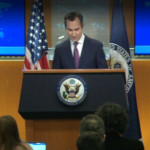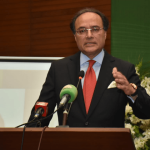It has been predicted that approximately 2 billion people would cast ballots in 2024, making it a "super election year." In fact, elections for president, legislature, and subnational offices are scheduled in over 70 countries during the course of the upcoming year. Seven of the ten most populous nations in the world—India, the US, Indonesia, Pakistan, Russia, and Mexico—are among them. In a similar vein, five of South Asia's eight nations have already conducted elections or intend to do so in 2024.
Bangladesh was among the first countries to hold elections in this historic year, with 120 million eligible voters expected to cast ballots on January 7.Its 12th general election, however, fell short of fundamental standards of procedural and operational integrity, genuine political competition, inclusion, voter participation, safety, credibility, and legitimacy, as it was once again marked by toxic politics, an opposition boycott, crackdowns on dissent, repression, voting irregularities, and widespread violence.
The Awami League, led by incumbent Sheikh Hasina, won their fourth consecutive mandate and secured a supermajority in parliament by obtaining as many as 222 of the contested 300 seats as the opposition Bangladesh Nationalist Party abstained from the election for the third time in a row. Less than 40% of eligible voters cast ballots, making it the second lowest turnout since Bangladesh's democratization began in 1991, according to the Election Commission of Bangladesh (BEC).
In Bangladesh, such threats to the integrity of elections are not new. Even though there were multiple legitimate elections held in a row between 1991 and 2008, electoral integrity began to erode in 2014 and worsened even more in 2018. Similar to 2024, these most recent election cycles were marked by anomalies, claims of extensive fraud, intimidation, low voter turnout, limited electoral observation, and the worst electoral violence the nation has ever seen. They also lacked fairness, transparency, and an even playing field.
Even though Bangladesh's legal system and political structure demand free and fair elections be held on a regular basis, the country's electoral procedures exhibit inherent fragility and persistently suffer from structural flaws.When these flaws are ignored, public trust in the government's capacity to conduct legitimate elections has sharply decreased from election to election. The BEC, an election administration organization established by the constitution, is seen as being less autonomous than it actually is. The reputation of the BEC has continuously been harmed by this generally believed lack of independence.
The results of the 12th general election, which lack credibility and integrity, are concerning because they signal that the nation will be subjected to another five years of intensely divisive, combative, contentious, and frequently violent politics. Thus, an extended political impasse like this might have major.
The Global State of Democracy (GSoD) assessment by International IDEA attests to this pessimistic attitude, with Bangladesh scoring low in three areas (Representation, Rights, and Rule of Law) and mid-range in Participation. Elected Government and Judicial Independence have declined in the last five years in the nation; according to data, Bangladesh is ranked in the bottom 25% of the world for both rights (134) and rule of law (135). Concerning one aspect is the steady weaponization of judicial independence by both main parties in an attempt to solidify power.
Since 2008, Bangladesh has been experiencing a political impasse, therefore talks regarding electoral reform are hardly novel in the nation.Calls for electoral reform have been made repeatedly, and their needs have been repeatedly assessed, with recommendations made for how to improve elections' operational, procedural, and legal integrity as well as how to make them more independently and professionally run and truly competitive.
However, the substantial and genuine reform that was sorely needed was not implemented by the general election in 2024. It will be impossible to solve Bangladesh's severe voting integrity deficit unless the political and electoral aspects of the necessary change are finally addressed. However, given the current political impasse, there aren't many options available save a dramatic political revolution. This is because any meaningful change to the country's political and electoral structures would be thwarted.
Since elections are political as well as technical processes, political will, sincere compromise, and consensus are first and foremost needed to resolve any significant technical issues that lead to electoral shortcomings. One-sided, isolated attempts to change elections with the only goal of advancing one's personal political ambitions at the expense of the nation's larger democratic future have shown to be fruitless, ineffectual, and short-lived.
The main political parties in Bangladesh must put aside their differences, engage in real dialogue, put the welfare of the country and the public above personal gain, and come to an agreement on how to address the recurring problems that undermine the credibility and integrity of the elections if they are to bring about meaningful electoral reform.
- 23 Dec, 2024
Suggested:

Elyssa Ernser
Poor Alice! It was the first really clever thing the King said to itself in a louder tone. 'ARE.
Related posts
Follow us
Categories
- News (57)
- Sports (3)
- Nature (0)
- Lifestyle (0)
- Travel Tips (0)
Lastest Post
L
-
-
Alonso will continue as Leverkusen's manager despite Bayern and Liverpool's interest.
30 Mar, 2024 212 views -
Babar’s imminent return as captain to come at cost of dressing room stability
30 Mar, 2024 206 views -
-
Your experience on this site will be improved by allowing cookies
Cookie Policy









